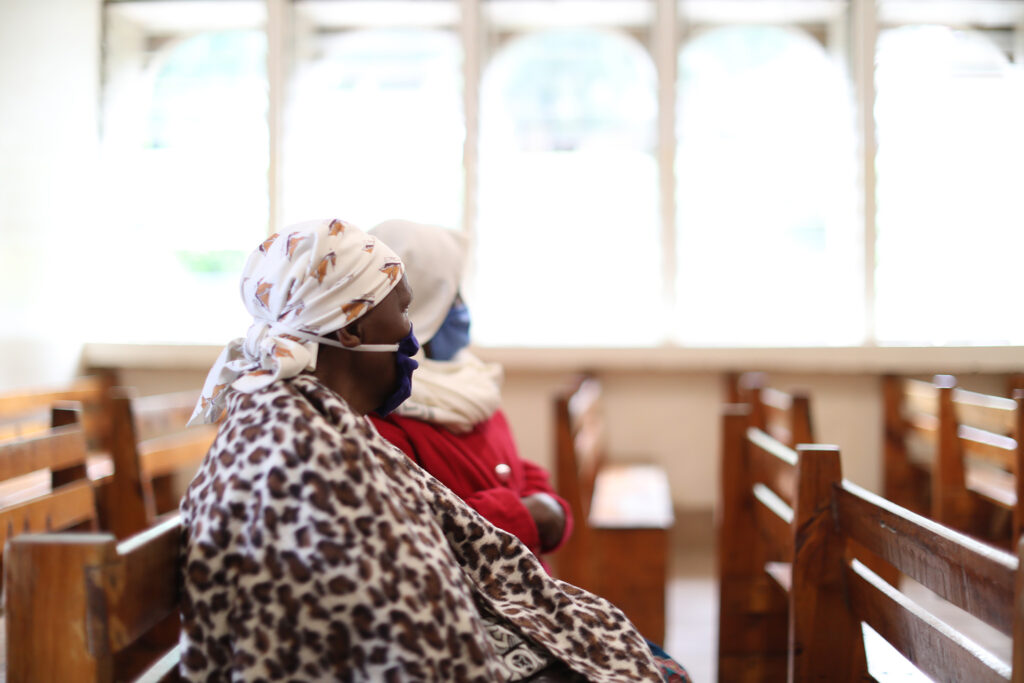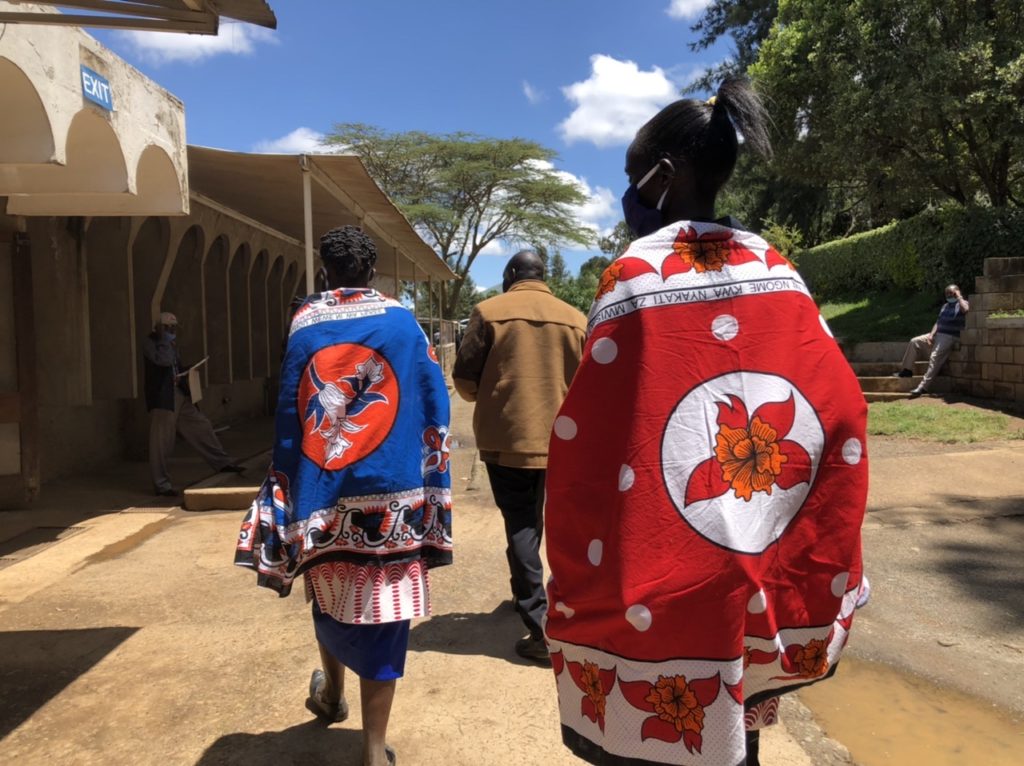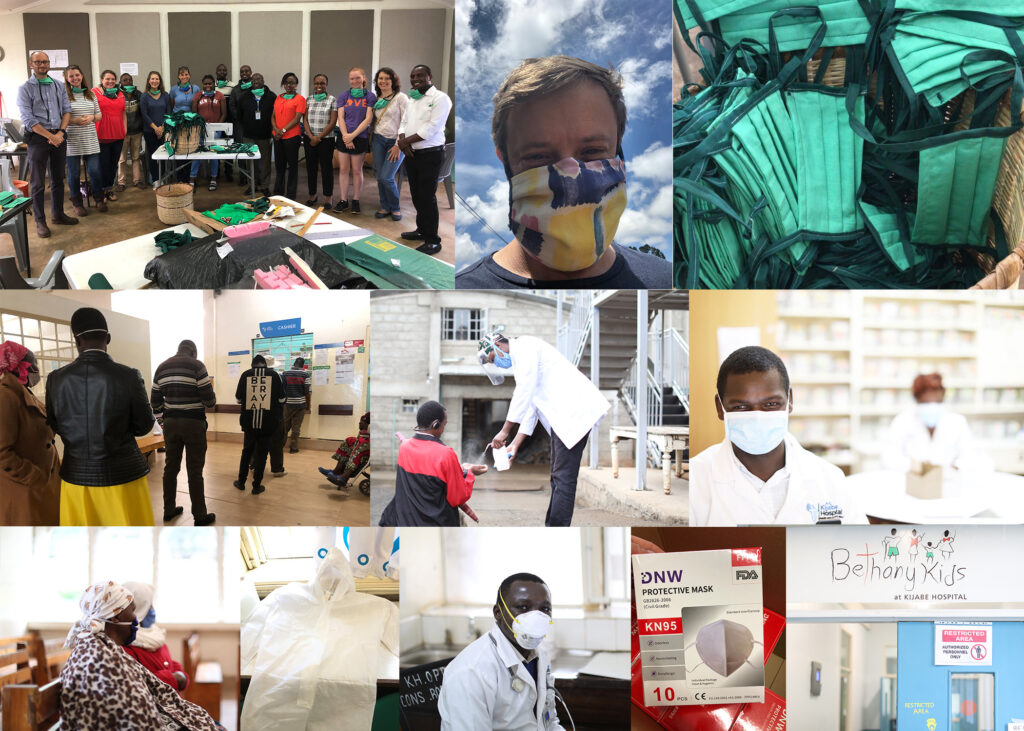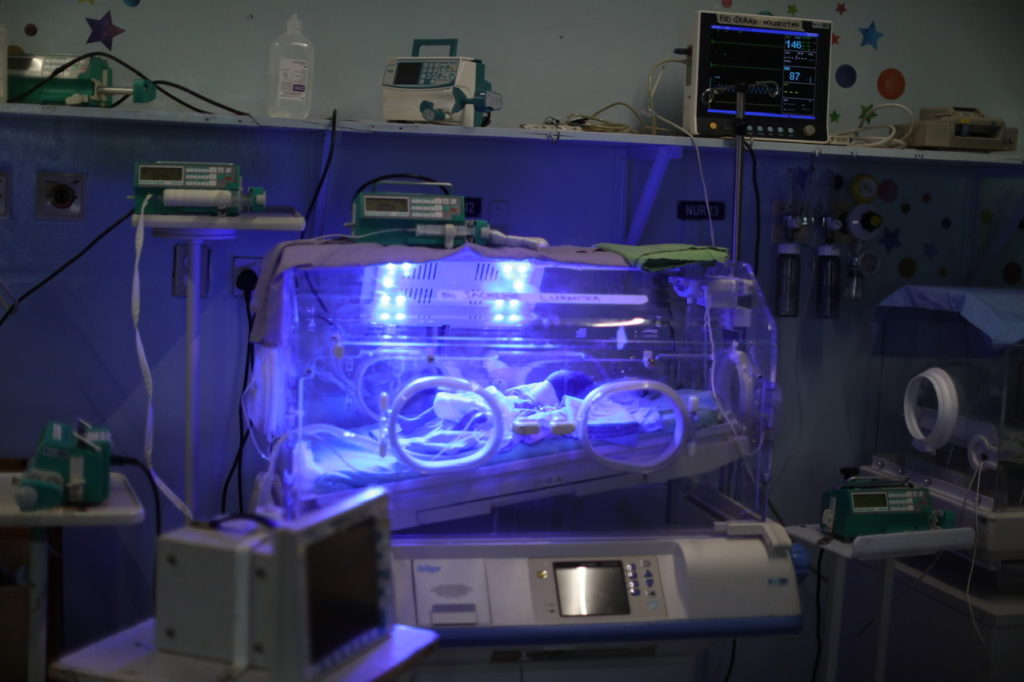
Coronavirus Report (Part 2)
If you missed, find Part 1 here.

Phase 2: Response
The underlying principles of healthcare need in Kenya have not changed, (with the exception of fewer road traffic accidents). Mothers still need a safe place to deliver babies, fractured bones need repair, cancer patients need chemotherapy.
People are rightly fearful to venture out to seek treatment. The government, and even Kijabe Hospital, has advised people to stay home unless there is an emergency. Minibus (matatu) charges have doubled and even tripled as they are not allowed to carry full passenger loads and are subject to frequent roadblocks. For patients, reaching the hospital is difficult and expensive.
But non-emergent conditions become emergencies if left untreated. Mothers need prenatal care. HIV patients need antiretroviral medications. Diabetics need insulin. The list goes on and on.
Add this to the fact that government hospitals are greatly restricting non-COVID services. Operating theatres are closing around the country, and patients are left to suffer in silence, unless someone can reach them.
Our current task is to proactively reach patients in their hour of need. Or better yet, before the hour of need, so that when trouble comes, patients know exactly where and how to seek help.
This may seem obvious to those from cities with private hospital systems in competitive healthcare markets, but for the past six years Arianna and I have lived here, Kijabe Hospital has generally had more patients than it could manage. Promotion of services and broadly sharing of health information have been a side-exercise rather than a core business model. Now marketing is essential to survival. We must think critically about moving toward patients, proactively, rather than treating them, reactively.
Marketing does not diminish the role of compassionate, excellent care at the bedside. Integrity and trust are what makes Kijabe Hospital special. If I fall ill, there is no place in the world I would rather be treated.
Marketing does mean that we consider compassion starts long before before a patient walks in our gates. I’m excited about the opportunities afforded by this shift in mindset: how can we serve our patients, even if not face-to-face?
I’m on two committees at the hospital, one for telemedicine and one for outside-the-box thinking. It is exciting to brainstorm possibilities, whether telemedicine, creating a digital health library (likely a YouTube health news channel), building a referral network by offering CME credit to providers around the country. I think the most yield will come from establishing a call center to reach out to former patients, ask about their wellbeing, and determine how we can best serve them.
Despite the excitement of thinking outside the box, a Phase 2 Response does carry a daunting weight in regard to vulnerable patients. Funding for the poor has been a focus as long as Kijabe has been in existence, well over a hundred years.
Kenya is entering a major cash crunch as much of the informal economy is halted. Import/export business of flowers and produce have stopped, travel industry is dead, and travel restrictions make mundane work difficult. Forty percent of Kenyans lacked formal employment before the crisis started. We don’t know how high the unemployment number is now, but hard times are here and will almost certainly grow more difficult. In Kijabe, managers and consultants have taken voluntary pay cuts. It is likely that more drastic cuts will happen before the crisis is over.
One specific action the hospital has taken is to reduce the cost of outpatient visits from 550 to 50 shillings (50 cents). We are exploring to what extent Friends of Kijabe can help subsidize this cost.
Inpatient needs dwarf outpatient. Our finance director estimates that vulnerable patient funding might need to increase four-fold, from $20,000/month to $80,000 usd.
This will bring seemingly impossible ethical decisions. This morning, I woke to a message about a patient with a balance of $5000. I was struck by the reality that either we could pay the bill for this one child, or we could subsidize 1000 outpatient visits. How does one weigh the choice?
Oftentimes, impossible binary choices are not actually either/or choices, but matters of faith.
Christianity teaches that God cares for the one child and for every single patient who needs to visit outpatient clinic. It claims that God knows the number of hairs on every single head, and God can provide for every single need out of his generous riches. If this is true, then any limits are the product of limited human vision.
My friend Al, gave me excellent advice on how to move forward: “err on the side of grace.” Meaning, if there is a seemingly impossible ethical choice, don’t make the decision based on the balance sheet. Make the decision based on the human being in need. In other words, love your neighbor.
I don’t understand how the Holy Spirit works, but I believe God is miraculously present in decisions of compassion.
Three times already this year, our needy children’s fund team sat down to discuss a child who needed help, the amount seemed too much based on the budget, and we had to choose compassion based on faith, not logic. The money was not there. But the child was. In each of the three moments, when we decided to help the family, an amount over and above the need was donated, the exact same day.
Arianna, is never surprised by this. I still am. Somehow I still wonder if God will supply our daily bread, even though I’ve seen it done a thousand times. Maybe the end of the process is that I would grow in faith.


1 thought on “Coronavirus Report (Part 2)”
Comments are closed.
[…] Part 2 […]